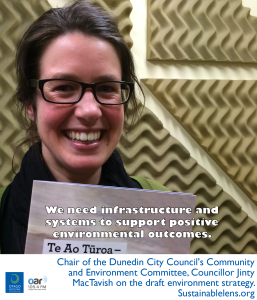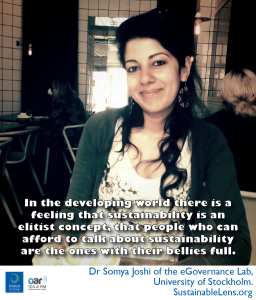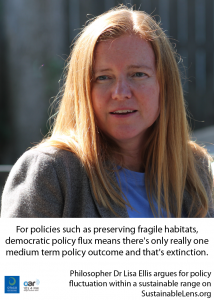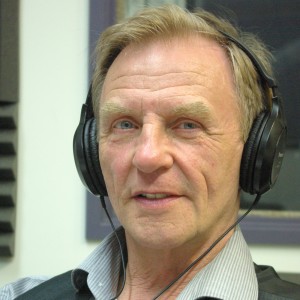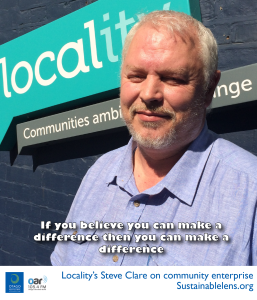
If you believe you can make a difference then you can make a difference.
Steve Clare is Deputy Chief Executive of Locality. Locality is the UK’s leading network of development trusts, community enterprises, settlements and social action centres. Steve describes how community asset ownership is a route to sustainability.
Talking points
Community organisations making a difference
Board drawn exclusively from an area of social housing runs successfully with a turn-over of £8-10M, assets of £30-40M.
Really entrepreneurial and yet they are community owned, community run, open to everybody within the community. It’s about having more say, more control about what happens, in their community.
Enterprise and community asset ownership is a route to transforming communities, and a route to sustainability.
We would argue that transferring assets to community ownership is a better long term bet in terms of the future prosperity of the community – rather than just selling them off for a quick buck.
The world is moving to a sharing economy.
The very local and the global are more than ever, two sides of the same coin.
The next door community doesn’t have to be physically next door.
We’re seeing a fundamental change in the economic paradigm
…based on a model of an ever growing economy, an ever expanding tax income, and an ever increasing spend on public services…that’s changed, the economic crisis has led Europe to austerity policies…some people think ‘oh well, eventually it will get back, get better, the economy will grow and we’ll get back to the way it was’, I think that’s a mistake – it’s never going back to the way it was.
The post-war model of ever increasing economy, ever increasing tax income, ever increasing spend on public services – it’s broken, much as we might regret it, it’s broken. That has led to fundamental questions being asked about the relationship between state and citizen, state and communities, and who does what, and who is responsible for what.
People taking control of their lives.
Local people understand local problems, local challenges and local opportunities better than some faceless bureaucrat no matter how well meaning they may be.
Dis-economies of scale
People aren’t widgets.
Local solutions are best driven, best decided upon at a local level.
A cross in a box every five years in an election is not democracy. Local ownership, local control starts to ask questions about whether there are other things we should be making decisions about locally.
The options and opportunities that digital technology brings, I think there is scope for a different sort of politics.
We have a 21st Century society, we have a 21st Century population, we have a 21st Century economy, but we still have a 19th Century political system which is no longer fit for purpose.
People will mobilise in response to closing a hospital or library, the challenge is to then get people to start asking deeper questions.
Libraries are being decimated by public spending cuts…that’s caused a lot of controversy. Some people have responded ‘we”l take over the library and run it as a volunteer service’, well meaning but personally I would query how sustainable that is. The other approach…is saying many libraries as they are at the moment, are 19th Century institutions that are no longer fit for purpose. What we need to do is reinvent the library as a 21st Century – it isn’t about a place where you store large lumps of paper ie books, it isn’t a place where you deal with ebooks either that’s a dead end… what you can make a library into is a real community hub, a store of local knowledge, a place of empowerment, a place where people can learn, share, swap ideas and skills, linking to technology, linking to the maker-hacker movement for example. The 21st Century library for me can, and should be a vibrant essential part of any community.
If nothing else changes, changing ownership is not going to work.
A service or building that isn’t working, is still not going to work if all you change is who owns it.
Getting local people involved
Government policy tends to be focussed on deprivation – what’s wrong with a community – a deficit gap model. I think we need to turn that around to asset based community development (ABCD). The starting point has got to be what are the assets within the community – the people, the skills, the networks.
In my experience, every community, no matter how challenged or deprived, always has a huge rich seam of potential and creativity. If you keep telling people that they’re a waste of space, if you keep telling people that they have nothing to offer, if you keep telling people that they’re a failure it becomes a self-fulfilling prophecy.
Once people start recognising that they can do something about their lives, that they do have choices, that you always have choices, sometimes the transformation is remarkable, you can almost see someone growing like a flower bursting into bloom. I think the same thing applies to communities.
If people think don’t think can do something then they won’t try. If people think they can do something then they will.
Many of our members are extraordinary people, but they were ordinary people until they became extraordinary by doing something, by taking action. By refusing to accept no as an answer.
It’s about working together, genuine partnerships…I don’t think any one sector has the answer. But what I do think is that the paternalistic, top down, system drive, scale approach that the public sector has is no longer fit for purpose.
Creating situations where people can do things for themselves, then stepping back and letting people get on with it.
People don’t want to live in a place that’s the same as everywhere else.
(Motivation) I hate with a vengeance oppression, inequality, seeing human lives wasted. I love with a passion seeing what people can become, the changes that they can make to their own lives, their children’s lives, to their communities.
The perception that people are fundamentally selfish is completely wrong. Anyone who understands history understands the role of the commons, of sharing, the fact that as a species we’ve moved forward through cooperation.
The idea that we act as rational economic beings is demonstrably nonsense, that we’re driven by indviduals needs is demonstrably nonsense, that you get jobs growth through increased productivity is demonstrably nonsense, – much of the current science of economics belongs in Harry Potter.
The established political system is the problem not the solution.
(Activist?) Yes. My work is my life. I don’t go on demos as much nowadays, but I hope I work in different ways.
I’m much more cynical nowadays days about gesture politics. If you’re going to do something, as far as I’m concerned, you damn well do it properly, you do not give up. I’m less keen about people who say “we want this, we’ll go out and fight for this, oh, it’s hard, we’ll give up”.
The collaborative economy is a game changer.
I saw a great quote the other day: “Social entrepreneurship used to be an oxymoron, now it’s a tautology”.
(Advice) I like Ford’s quote: “If you believe you can, or you believe you can, you’re probably right”, I think that’s such a powerful thing
If you believe you can make a difference then you can make a difference.
Opening people’s eyes to the possible, to the wonderful things happening out there by people just like them.

